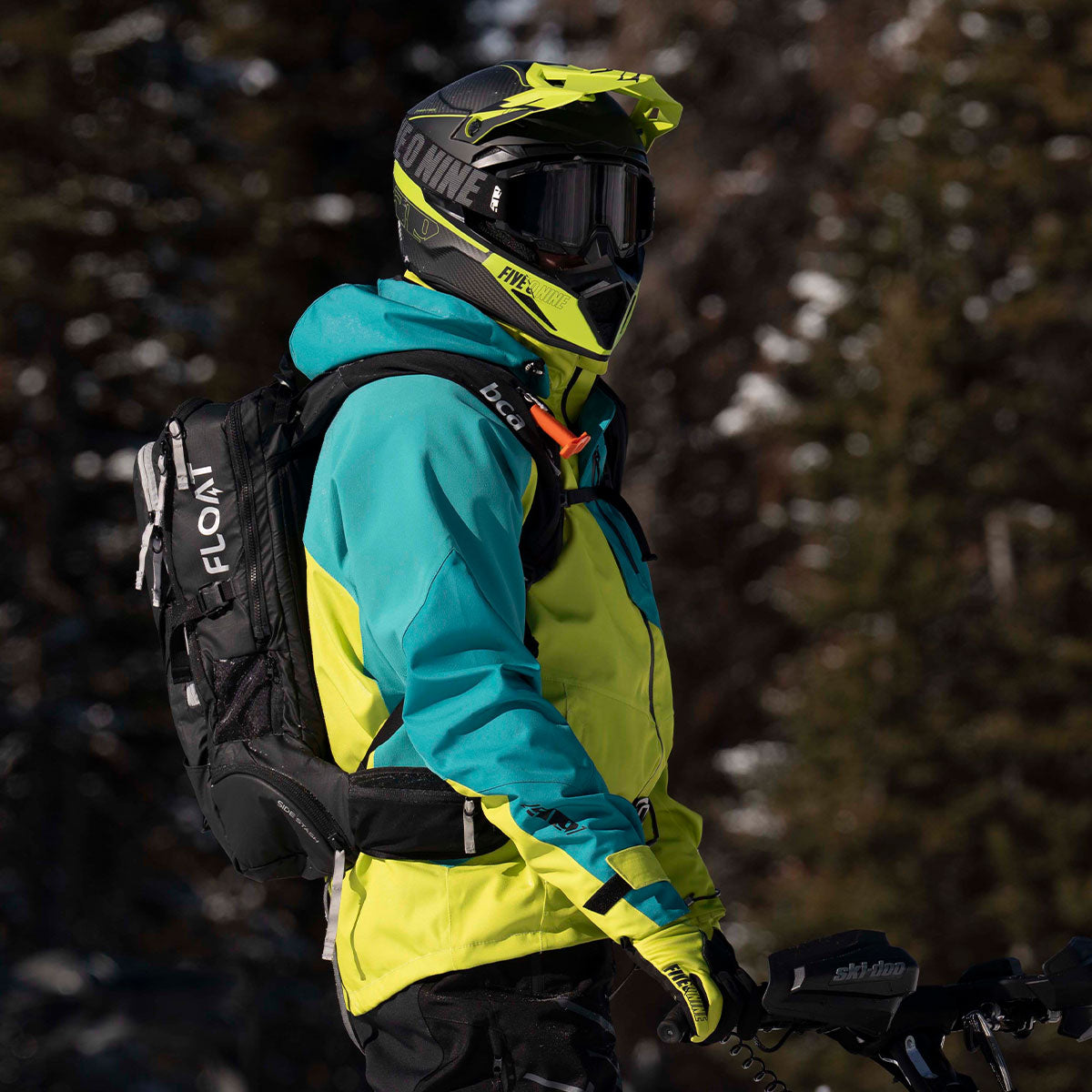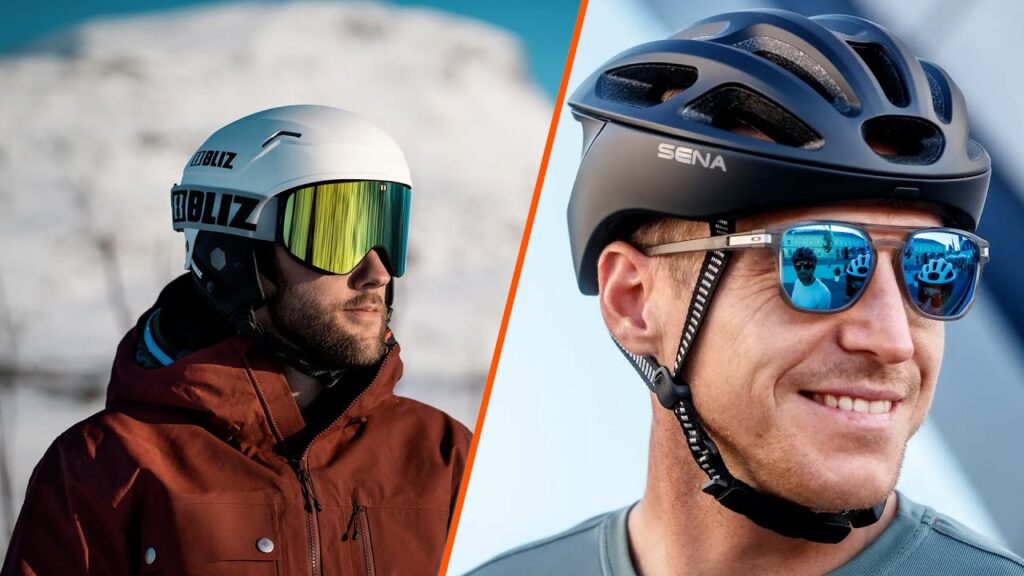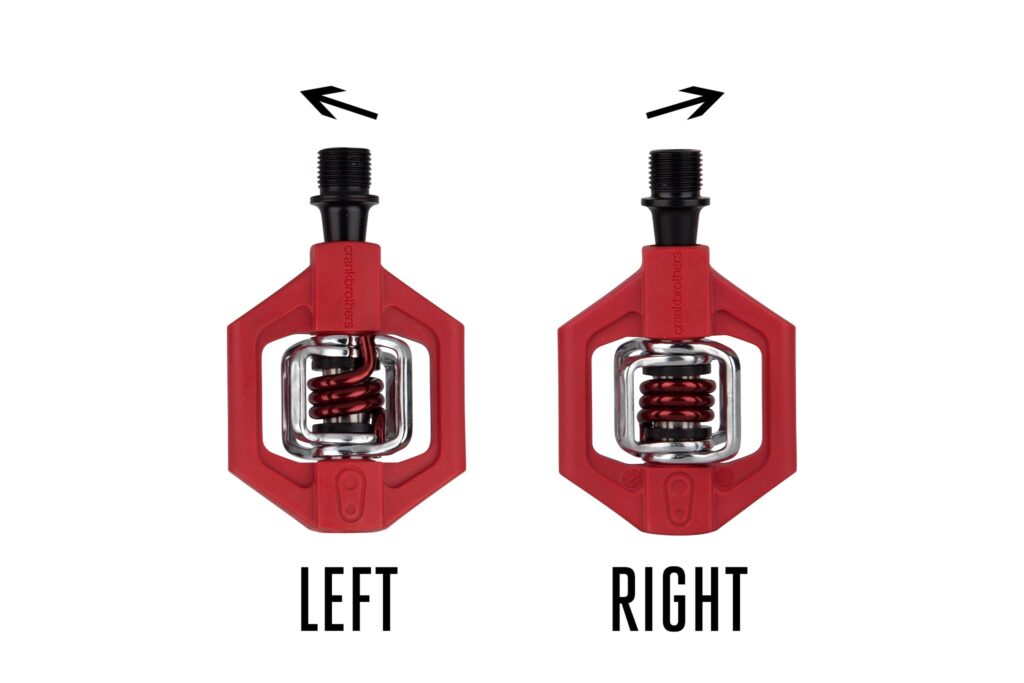You love the thrill of skiing down a snowy slope or cycling through scenic trails, but safety is always a top priority. You may wonder if your trusty bike helmet can double as a ski helmet.
It’s a tempting thought, especially when you’re looking to save money or space in your gear bag. But is it safe or wise to swap one for the other? This is a question many outdoor enthusiasts like you have pondered.
We’ll explore whether your bike helmet can truly protect you on the slopes or if it’s time to invest in a dedicated ski helmet. Get ready to discover insights that could make all the difference in your outdoor adventures.
Bike Helmets Vs. Ski Helmets

Credit: www.cheapsnowgear.com
Bike helmets and ski helmets differ in design and safety standards. Using a bike helmet for skiing might not offer the needed protection. Ski helmets are specifically made to handle cold weather and potential impacts from falls on snow.
When you’re ready to hit the slopes, safety gear is essential, and helmets are at the top of that list. But can you grab your bike helmet instead of investing in a ski helmet? Understanding the differences between bike helmets and ski helmets is crucial to making an informed decision.
Let’s break down these differences to help you decide if your bike helmet can double up for skiing.
Design And Structure
Bike helmets are designed for different impacts. They protect against falls on hard surfaces like pavement. Their design often includes more ventilation with larger openings, which is great for biking but not ideal for the cold slopes.
Ski helmets, on the other hand, are built to withstand colder temperatures and impacts from different angles. They have a more insulated design to keep your head warm and snug. The structure also incorporates ear protection, which is crucial when skiing.
Ventilation And Temperature Control
Bike helmets are made with ventilation as a priority. The airflow keeps you cool during intense rides. This feature, however, can be a drawback on a snowy mountain where keeping warm is more important than staying cool.
Ski helmets usually have adjustable vents. This allows you to control how much air flows through, keeping you comfortable in varying weather conditions. This adaptability makes ski helmets more suitable for the cold, unpredictable weather on the slopes.
Safety Standards And Certifications
Safety standards for bike helmets are different from those for ski helmets. Bike helmets are tested for impacts typical of cycling accidents, while ski helmets are tested for falls that might occur on snow or ice.
Ski helmets also undergo rigorous testing to ensure they can handle the unique conditions of skiing. They are certified by organizations like ASTM or CE, ensuring they meet specific requirements for winter sports. Checking these certifications can help you ensure your safety on the slopes.
Comfort And Fit
Comfort is key whether you’re biking or skiing. A bike helmet might not fit as snugly when worn with goggles or other ski gear. This can lead to discomfort and distraction, which you want to avoid when navigating snowy terrain.
Ski helmets are designed to fit comfortably with other ski equipment. They often come with features like adjustable straps and removable liners, making them more versatile for different head shapes and sizes.
Personal Experience: A Tale Of Two Helmets
Last winter, I tried using my trusty bike helmet for a skiing trip. It was a rookie mistake. The ventilation was too much, and my ears felt like they were in a freezer.
Switching to a ski helmet made a world of difference. It fit perfectly with my goggles and kept me warm throughout the day. This experience taught me the importance of using gear designed for the specific sport.
Have you ever considered the safety implications of using the wrong helmet? It’s a risk not worth taking. Ensure you have the right gear for each adventure to enjoy your activities safely and comfortably.
Safety Considerations

Credit: ride509.com
Bike helmets and ski helmets have different designs and safety standards. Skiing involves unique risks like cold temperatures and falls. A ski helmet provides better protection with insulation and coverage. Using the right gear enhances safety and minimizes injury risks.
When it comes to enjoying outdoor sports like skiing, safety should always be your top priority. You might wonder if your trusty bike helmet can double as protection on the slopes. While it seems like a practical idea, there are specific safety considerations you need to think about before making this choice.
Helmet Design Differences
Bike helmets and ski helmets are crafted differently. Ski helmets often cover more of your head and ears, providing better insulation against cold weather. They are designed to handle impacts from multiple directions, unlike bike helmets which mainly focus on head-on collisions. Do you want to compromise on safety just for convenience?
Temperature Adaptability
Skiing involves exposure to freezing temperatures. Ski helmets are designed to keep you warm, with ventilation systems that allow airflow while maintaining warmth.
Bike helmets are built for summer rides and can leave you feeling chilly on the slopes. Would you risk discomfort and potential frostbite for a quick fix?
Impact Resistance
The materials used in ski helmets are optimized for the types of falls and collisions common in skiing. They usually have a harder outer shell and softer inner padding. A bike helmet might not offer the same level of protection in a fall on ice or snow. Are you willing to gamble with your safety by using a helmet not meant for skiing?
Certification Standards
Safety certifications differ between bike and ski helmets. Ski helmets must pass specific tests for cold weather and impact resistance that bike helmets do not. Checking the certification labels can help you make an informed decision. Have you checked if your bike helmet meets skiing safety standards?
Comfort And Fit
A well-fitted helmet is crucial for safety. Ski helmets are designed to fit snugly with ski goggles, offering a secure and comfortable fit even during vigorous activity. Bike helmets might not provide the same level of comfort or compatibility with ski gear. Does your bike helmet fit well enough to ensure safety while skiing?
Ultimately, while it might be tempting to swap your bike helmet for skiing, these safety considerations suggest it might not be the best idea. Your safety is worth the investment in a helmet specifically designed for skiing.
Expert Recommendations

Credit: braveskimom.com
Bike helmets and ski helmets serve different safety purposes. Experts recommend using a helmet specifically designed for skiing. Ski helmets offer better protection against cold and impacts on the slopes.
When you’re hitting the slopes, safety is just as crucial as when you’re cycling through the city. You might wonder if your trusty bike helmet can double as a ski helmet. Expert recommendations can provide clarity on this topic, ensuring you make an informed decision before you head out.
Understanding Safety Standards
Safety standards for helmets vary between sports. Ski helmets meet specific impact resistance and coverage requirements designed for cold weather and high-speed falls. Bike helmets, on the other hand, are tailored for different types of impacts.
Would you trust your bike helmet to handle a ski slope crash, especially with these differences in mind?
Temperature Considerations
Skiing involves cold and often wet conditions. Ski helmets are designed to keep your head warm and insulated. Bike helmets, with their ventilation, might leave you shivering on the slopes.
Have you ever felt the biting cold through your bike helmet on a chilly ride?
Material And Design Differences
The design and materials used in ski helmets often include features like ear protection and goggle compatibility. Bike helmets lack these essentials. While a bike helmet may protect your head, it may not provide the full protection required for skiing.
Can you imagine skiing with your ears exposed to freezing winds?
Expert Opinions On Dual-purpose Helmets
Some experts suggest that while a bike helmet might offer some protection, it shouldn’t be your first choice for skiing. Helmets are a crucial safety gear, and using the right one for the right sport is important. You wouldn’t want to compromise your safety for convenience.
Have you ever used the same gear for different sports, and did it meet your expectations?
Recommendations for Choosing The Right Helmet
Choose a helmet specifically designed for skiing. Look for features like adjustable fit, ear protection, and compatibility with ski goggles. This ensures optimal safety and comfort on the slopes.
What features do you prioritize when selecting your helmets for different activities?
Making an informed choice about your safety gear is crucial. By understanding expert recommendations, you ensure both safety and enjoyment in your skiing adventures.
Conclusion
Choosing the right helmet matters for safety. Ski helmets are designed for cold and impacts. Bike helmets focus on ventilation and different protection.
Each serves its purpose. Using a bike helmet for skiing might not offer enough protection. Consider investing in a ski helmet for the slopes.
It provides warmth and safety. Stay safe and enjoy your adventure. Protect your head with the correct gear. Make informed decisions for your activities. Safety first, always.



